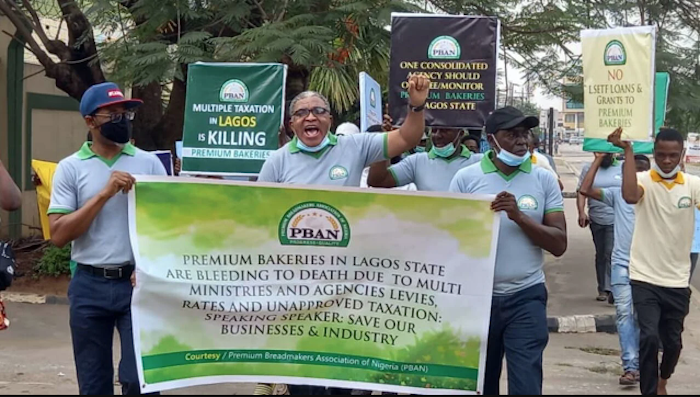It has been decided that the Premium Breadmakers Association of Nigeria (PBAN), which includes the owners, Managing Directors, and Partners of premium bakeries in Nigeria, will begin a four-day warning strike on Thursday, July 21, 2022.
Breadmakers in Nigeria took the decision in protest of rising prices for baking supplies, claiming that it is now impossible to run bakeries in the country.
To put it another way: how gas, fuel, and bread prices pushed inflation up to 17.71% in May
The importance of sharing a meal together
It was also requested by Emmanuel Onuorah and Babalola Thomas of the Association that the Federal Government stop charging a 15% Wheat Development Levy on wheat imports, which they believe is unfair.
As a result, they asked NAFDAC to reduce the penalty of N154,000 imposed on bakeries for failing to renew their certificates.
Members of the PBAN also urged the government to grant them access to the grants and soft loans being offered by the Central Bank of Nigeria (CBN) to Minor, Small and Medium Scale Enterprises (MSME) (MSMEs).
In addition, the breadmaking industry’s trade group called for an end to multi-agency regulation.
A bakery in Nigeria has become nearly impossible to run due to the constant rise in the cost of baking materials and diesel.” Currently, the vast majority of bakeries are operating at substantial losses, which is not sustainable.
“Bread is a staple food that is affordable to both the wealthy and the less fortunate. The federal government should therefore be aware of this and ensure the industry’s long-term viability and sustainability.
Starting Thursday, July 21, 2022, we will begin a four-day service suspension in order to protect the Nigerian Premium breadmaking industry. If the government does not intervene, the suspension will be extended for an additional four days.”
As part of our efforts to ensure the breadmaking industry’s long-term viability, we held a series of meetings with the Federal Ministry of Industry, Trade and Investment, Abuja (FMITI).” We have made every effort to ensure that the breadmaking industry’s survival is ensured, but it hasn’t worked out that way.
In order to get the government and Nigerians to understand our plight and how difficult it has been with the breadmaking industry in Nigeria, we believe that the withdrawal of service is the only method we can use.”
